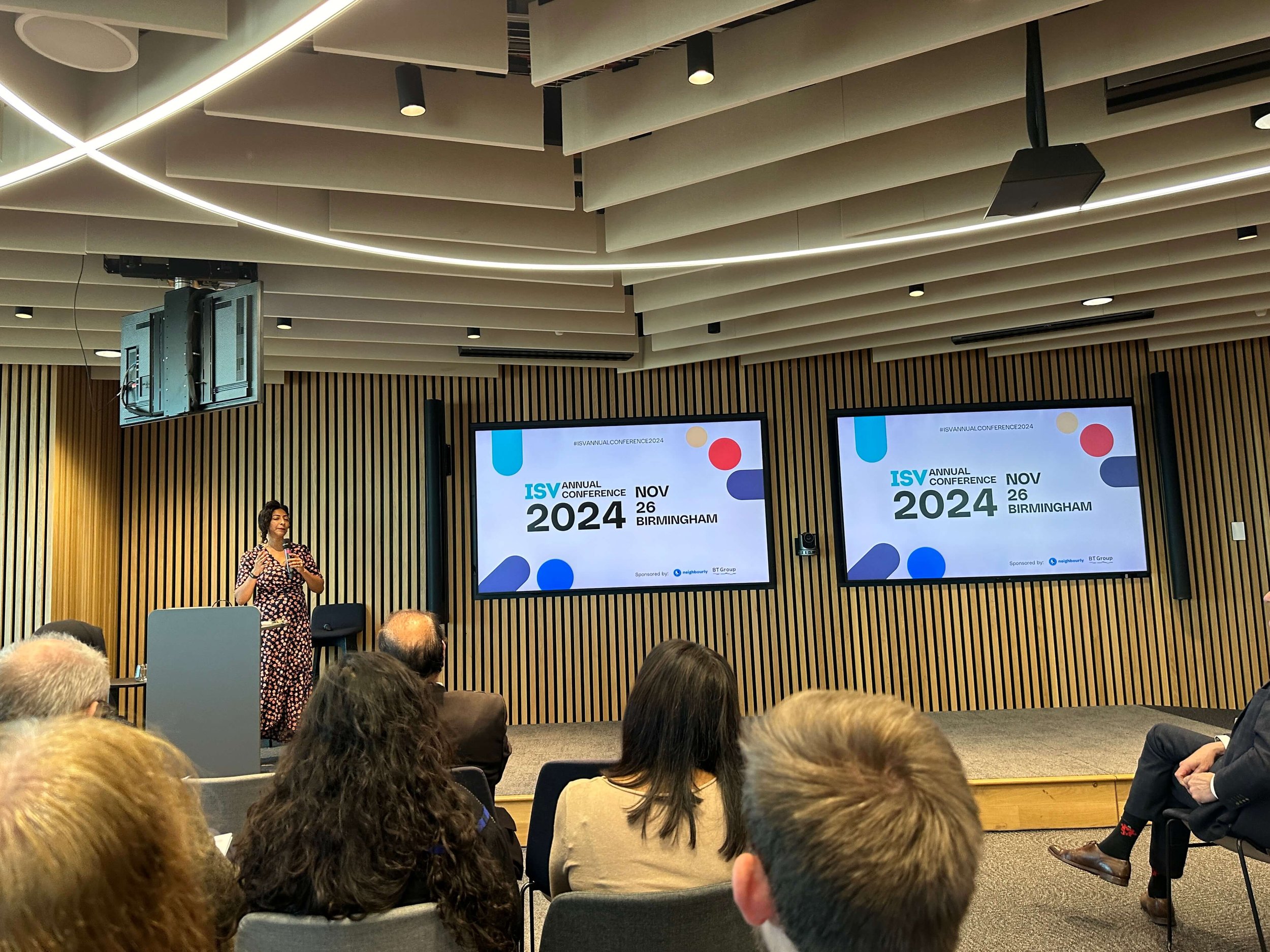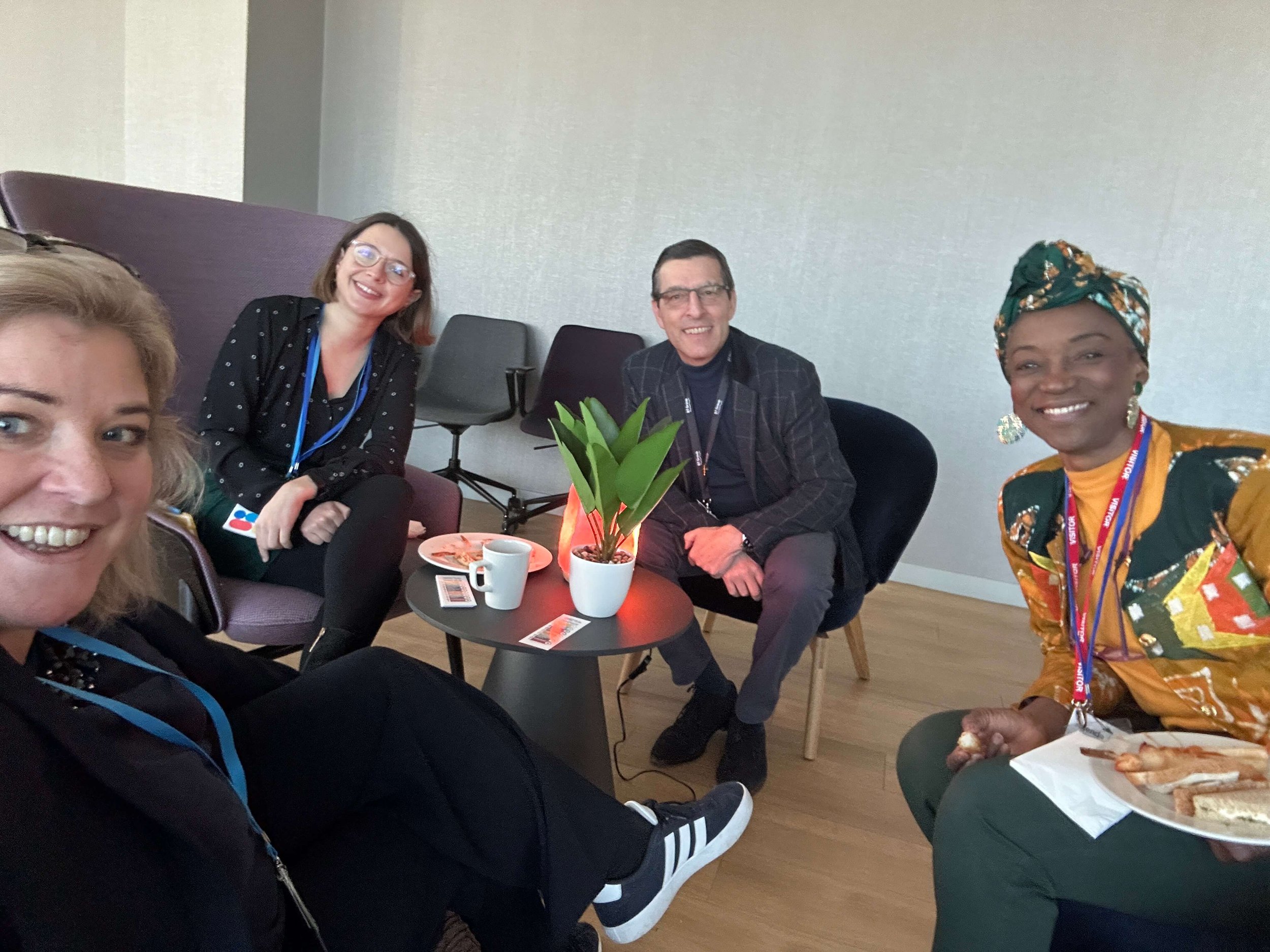Key Takeaways from the SVUK (ISV) Conference: Shaping the Future of Social Value
As anyone involved in social value knows, there is a lot going on in the social value space at the moment! The Samtaler team took the opportunity to listen in to and share latest thinking, as well as enjoy some face-to-face networking and get a rare chance to meet up in person as a team at the Social Value UK conference, held in Birmingham yesterday (26th November).
The event marked the formal launch of the Institute of Social Value (ISV), as the new name for Social Value UK (SVUK), and continued member engagement and participation in ensuring the ISV remains an organisation for its members, pushing forward the social value agenda with them and on their behalf.







In opening the event, the ISV CEO, Isabelle Parsaram OBE re-stated the ISV desire to be a community that is open and welcome to all members, wherever they are on their social value journey. There was equally a recognition that core to the ISV is being an organisation of integrity and so that welcome would have boundaries in not endorsing any form of social value washing, aptly captured by Isabelle’s quote, “If you stand for everything, eventually you stand for nothing”.
Institute of Social Value (Formerly Social Value UK) CEO, Isabelle Parsaram OBE opened the conference.
The theme of developing and sharing social value journeys, especially in the context of the current political and economic climate, continued throughout the sessions held over the day. The Samtaler team key takeaways from these sessions include:
How critical active engagement is to informing social value: multiple sessions touched on how this was key to allow buyers and suppliers to most effectively work together and deliver true social value through procurement, as well as how meaningful conversations with communities were vital to understanding what mattered most and when designing and then delivering social value schemes.
The need to create and maintain trust between buyers, suppliers and communities, which many agreed was fundamental to delivery of good social value. Key elements for this were agreed as transparency, especially when it came to measuring social value impact and how this would be done, as well as a willingness of all parties to create a safe space for meaningful buyer-supplier-community (or authority-developer-community in the case of planning) conversations rather than different groups just throwing stones at each other!
How social value requires a longer-term view when thinking about desired outcomes and objectives, even if this then needed to be broken down into smaller, interim, steps and objectives for contracts that did not run 10-15 years into the future.
Procurement and planning are the best levers (at the moment) as mechanisms to create local, place-based social value as they most effectively allow meaningful co-creation of projects and focused conversations.
However, social value is not just the 10% weighting in a procurement or section 106 commitments in planning: these are mechanisms to achieve social value, which are distinct from the wider concept.
Just as with procurement, the key to good delivery of social value through procurement (or planning) is from focusing effort on pre-market engagement and shaping of contracts/ schemes and then the contract management/ delivery, not from focusing effort purely on the procurement or planning process and then not following through.
Love them or loathe them, economic measures have their place in social value, they just can’t tell the whole story. Equally, when stating any social value created in monetary terms, it can be helpful to recognise where this value has a direct financial impact (i.e. can be classed as “cashable” savings in public sector finance speak) versus where it has an indirect financial impact (“non-cashable” savings) or avoids additional financial cost.
Equally, examples to date show that there is the best alignment in securing and delivering social value where there is a framework to work to – research shows this ideally should balance giving guidance and not being too vague whilst equally not being too defined so as to be restrictive.
We’re already looking forward to next year’s event!
Related Content: 🎙️Let’s Talk Social Value - Season 4, Episode 1 In this episode Sarah speaks with Isabelle Parasram, CEO of the Institute for Social Value, who shares her journey transitioning Social Value UK into the newly retitled Institute, the organisation's mission to professionalise the sector, and the importance of building an inclusive community.
How can we help?
At Samtaler, we understand the importance of your social value commitment. You’re here because you care about your business's impact on society and want to be better. We want you to succeed, and we know from experience that achieving social value requires skill, strategy, and support.
To find out how we can help, send an email to hello@samtaler.co.uk or book a call with us.


